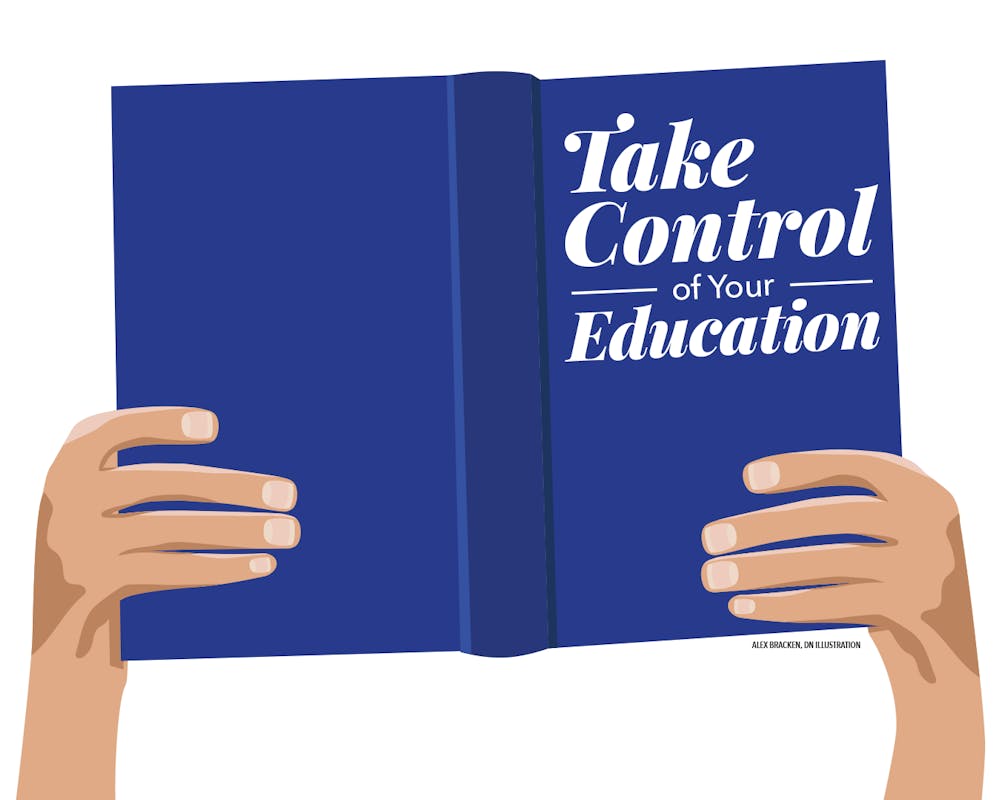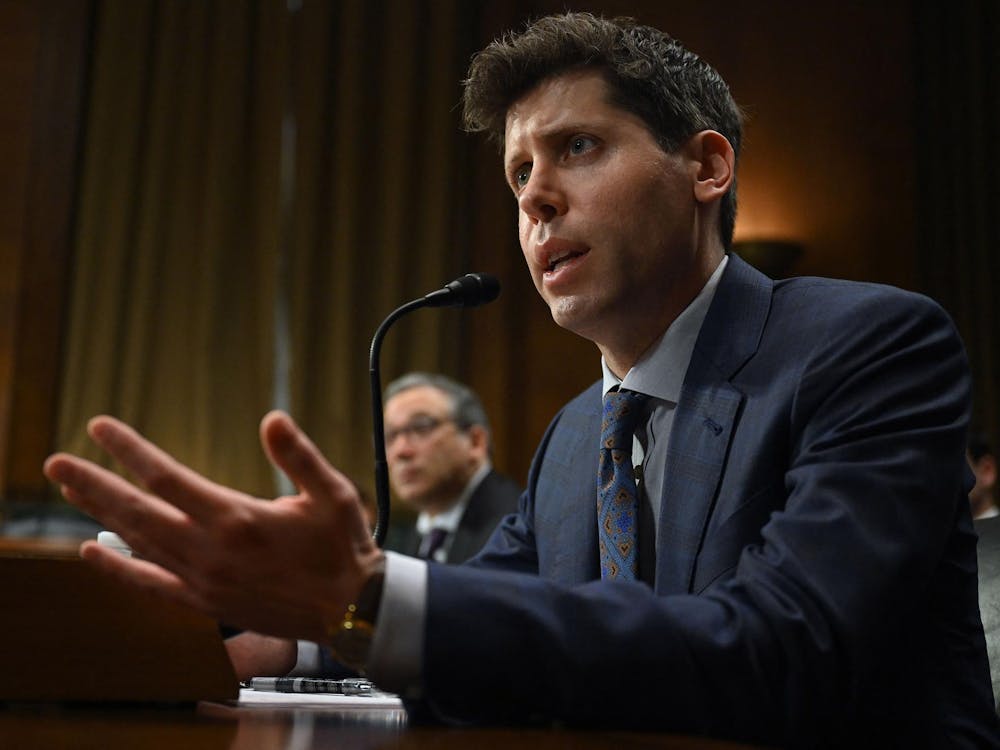Karla Toledo is a second-year social studies education major and writes “Teacher Time” for The Daily News. Her views do not necessarily reflect those of the newspaper.
I was buzzing with excitement as I waltzed into my first class of my freshman year, placing my bag next to me on the floor.
I opened a fresh notebook and waited for the professor. I felt my fingers tingling as the class started. Getting past introductions, the professor jumped straight into the syllabus. Here and there, the professor would ask a question to the class, and I hummed with delight when no one raised their hands.
I figured it was a good first day, but when the class ended and my peers shuffled out of the door, I noticed a few with queasy looks on their faces. I heard murmurs of confusion and nervousness. My next class was exactly the same.
When I met with a friend later in the day, she talked about how students in her class were too scared to ask questions, and she ended up raising her hand at every opportunity. I simply brushed this off as first-day jitters, but this continued into the year. My peers shared confused glances and scared looks as they fell behind and had no idea what was going on. A couple of times I dared to raise my hand, only to be met with signs of relief and quickly jotted notes.
As an education major, I probably should have realized what was going on sooner. Some students were absolutely terrified of our professors!
As the weeks passed, I couldn’t help but wonder if professors being scary was true, but a good chunk into my first semester, my thoughts began to turn.
In one class, raising my hand became scary. I lost the motivation to answer or ask questions. I felt so powerless as a student. Was this how my peers felt? I was trying to hold onto my dignity, but I was losing.
There were professors I could look in the eye but not this one. I began to wonder how many other students shared my same perspective, my same feelings.
Turns out it was more than I was ready for.
It was a stark contrast from how confident I had felt in my high school years being able to raise my hand and ask questions without a care in the world. I tended to know the answer to nearly every question, but when I got to college, I felt like I was second guessing every thought I had一 no longer was I a star student. I was struggling to stay afloat in a raging ocean.
Now well into my first semester as a sophomore, I am more prepared for the professors I will meet on my college journey. I won’t lie, my professors so far have been great. I love all of my classes, even if I don’t completely understand the curriculum. My professors make my peers and I feel comfortable in their classrooms. With a more prepared heart, I began to change my perception about professors.
Is it possible that we, as students, expect the worst from our professors before we even give them a chance?
Brandon Waite, an associate professor of political science at Ball State University, explained his perspective on this ideology, stating that professors aren’t trained to handle certain emotional or supportive roles for their students. Furthermore, he mentioned that younger professors are more adapted to handle the emotional needs of their students, while older professors find it more difficult to meet these new expectations and needs.
This is a narrative I am ashamed to say I did not consider. Professors aren’t like high school or middle school teachers, they aren’t paid or expected to handle your needs. As stated by Waite, there is nowhere in the training to take classes on mental health and well-being for students.
However, that is not to say that most aren’t willing to, they simply do not know how. For instance, when a professor is being a little rigid or may refer you to the counseling center, it is not to be condescending or undermine your emotions but simply because they are not trained to handle such situations.
Though as an education major, it makes me upset that I am expected to go through these loopholes to become a trained educator, yet professors handle young adults that aren’t fully developed, struggling to find themselves.
Waite also opened the perspective that professors aren’t the horrible monsters that our brains can make them out to be. We follow a stereotype that was placed in our heads. This mentality is dangerous! If students are too afraid to speak out, how can they succeed?
We are a generation that questions everything put in front of us, yet we have failed to question our surroundings and just accept our fates. This is not to say students are lying about their experiences or blowing them out of proportion, but I’m simply trying to say that we as students must provide for ourselves — our education is in our hands.
It is unfair of us to just assume that our professors can flip a switch in their brains and just catch up with our needs. Our hard-working professors don’t just teach all day— they have meetings, papers, grading and families that they have to attend to as well.
I will say from my experience, I know that I could have tried to find a new angle that worked for me instead of giving up and deciding that I wouldn’t be happy in a class. I do know that my feelings are valid, even if I didn't feel respected in my class.
Waite left me with more fuel for thought: “Sometimes I think students just don’t give professors the chance, they assume based on how the professor behaves in a math lesson that if they were to ask them about something non-math related, like mental health, that professor would just be the same way —stern and a jerk.”
Instead of assuming and not giving the professor much of a chance to prove they aren’t out to get you, you might be surprised and get the help you need. Even outside the realm of mental health, if you are confused in class, you shouldn’t be afraid to ask for help. If the professor continues to ignore or mistreat you, there are people you can go to on campus to get the answer you need such as the writing center, free tutoring and the counseling center.
Being a student, especially between the ages 18-23, it is hard to unlearn being shy or embarrassed in class, but understand that as an adult, you’re paying a large sum of money to not get the information you need.
I wish that I had someone telling me this my freshman year. It could have saved me from so many headaches and restless nights of asking Google when the Russian Empire defeated that one country, instead of just asking my professor to go a little bit slower, so I could write my notes down.
Contact Karla Toledo with comments at karla.toledo@bsu.edu or on Twitter @Jazzbee626.





